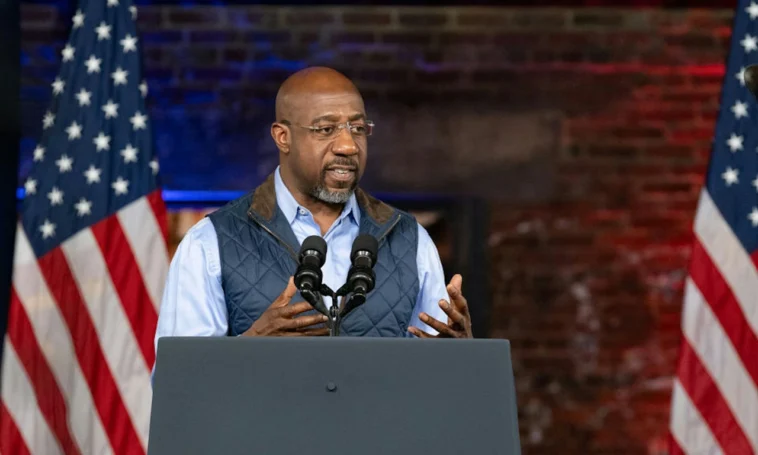‘Who Really Is Their God?’ Sen. Warnock Links Trump Supporters to Segregationists and Slavery Advocates. The Senator’s Comments Highlight Deep Divisions in the Current Political Climate.
Senator Raphael Warnock’s (D-GA) recent comments on “The New Yorker Radio Hour” have sparked a heated debate about the intersection of religion and politics. Warnock, a pastor and senator, compared former President Donald Trump’s supporters, particularly evangelical Christians, to segregationists and slavery advocates. He suggested that they must be answering to a different God, implying a disconnect between their religious beliefs and political actions.
Warnock’s remarks were in response to host David Remnick’s question about the apparent support for Trump among evangelical Christians, despite Trump’s controversial behavior and multiple felony convictions. Warnock drew parallels between these supporters and those who historically used Christianity to justify slavery and segregation.
He referenced Martin Luther King Jr.’s critiques of the American church during the Civil Rights Movement, questioning the values and God of those who support Trump while claiming to prioritize family values and private morality.
“The enormous number of people of earnest faith, who look at someone who lives the way he does, who’s now been convicted of multiple felonies, how do you analyze that?” Remnick asked.
Warnock’s comments have drawn both praise and criticism, with some seeing his remarks as a necessary critique of hypocrisy and others viewing them as divisive and dismissive of evangelicals’ beliefs. The exchange highlights the ongoing tensions between religion and politics in the US, particularly among evangelical Christians who have been a key demographic in Trump’s support base.
Some have criticized Warnock’s comments as perpetuating harmful stereotypes about evangelical Christians and ignoring the complexity of their beliefs. They argue that his remarks oversimplify the issues and fail to acknowledge the diverse perspectives within the evangelical community.
The stereotypes when reignited, will draw both criticism and praise depends on the audience. The remarks gathered more criticism than expected in Warnock’s case as pointing a fraction of people out for their religious believes sounds like a bad idea.
However, others have praised Warnock’s willingness to speak truth to power and challenge the hypocrisy of some religious leaders who support Trump despite his controversial actions.
The debate raises important questions about the role of religion in politics and the responsibility of religious leaders to speak out against injustice. Warnock’s comments have sparked a necessary conversation about the values and principles that guide our political actions and the need for accountability and moral leadership.
In the end, Warnock’s remarks serve as a reminder that religion and politics are intricately linked and that our beliefs and values must guide our actions in both spheres. As we navigate the complex landscape of religion and politics, we must strive for honesty, accountability, and moral leadership that prioritizes justice and compassion for all.




